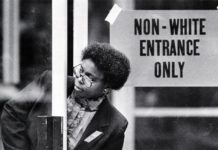Language is a code.
From humans down to every other animate species, we each have our code.
The communication codes of animals, plants, bacteria, and such are all finite. That is, a bird will not decide to learn a new language and speak to a bacteria and make plans to accomplish anything outside of the realm of what is built into them by God. Nor can they update those plans to make the situation better. Individually they simply accomplish the same thing over and over as their nature requires.
In other words, they stay in their lane. We rely upon their steady natures to grow food, produce medicines, put up bird houses, decorate our yards, and so forth.
Language for humans is also built in, but only in humans do we find the ability to learn more than the one language into which we were born, communicate complex ideas using them, and make and change plans with others to accomplish a common goal outside of our individual experiences.
I have an app on my phone that allows me to enter text in one language and translate it into eleven widely used languages for another human to understand. Isn’t that awesome? N’est-ce pas genial? Non è fantastico? ¿No es increible? Isso não é incrível? 那不是很棒吗?
But like any code, the better one knows a language the better one can use it. Language has nuance based on personal experience and the knowledge of how others have used it. That’s why when a joke is told some laugh and others don’t. You’ve heard “Well, if ya gots to ’splain it, then it just wasn’t funny.” That statement in itself is funny…except when it isn’t. I’ve said it after telling a joke that totally went flat only to have the person look at me like they didn’t understand even my joke about not understanding a joke.
Back in the Jimmy Carter era of long gas lines, one state (I believe it was California) had a system for purchasing gas that was supposed to eliminate those long lines. If memory serves, (was a mere child at the time and was not driving but still thought the situation funny) the system was that on odd numbered days only vehicles with odd numbered tags could get gas. Maybe it worked. I don’t know for sure. Still, a joke writer for Bob Hope got in trouble for writing a joke about it.
What happened was that Bob Hope was doing a show but not in California. In a whole other state not anywhere close to California. Jokes flowed fast and furious and the audience was having a fine ol’ time yucking it up loudly. Bob Hope was on a roll and man-oh-man was that roll hot and buttered. Until, that is, he came out with a joke about the odd-even gas line situation.
Like flipping a switch to off, the audience stopped laughing as one and, like the kids in a high school class I was subbing in (story below), stared at Bob Hope who was standing all alone on the stage staring back at the audience.
Bob thought he must’ve messed up the delivery and repeated the joke only to have the staring and confusion grow. So he asked the audience if they had gas lines in their state. The shook their heads as one in a big ol’ negatory. Bob, bless his little ol’ angry heart, said, “Well, a joke writer’s getting fired.”
Years ago I was substitute teaching a high school class. In explaining what their teacher wanted them to do, I noticed the entire class was staring at me, confused. When I asked why they were staring, one boy raised his hand and asked a question that amazes me to this day.
“What language are you speaking?”
Now it was my turn to stare at all the expectant faces, and then said, “English. The same language you speak.”
They did not understand that at all. It was now up to me to find my audience’s limitations in the code we were using in order to communicate. Alrighty then. Moving on. And I do and so did Bob. Bob immediately went into a common basis for his audience probably throwing out all gas line jokes from his routine.
I immediately changed how I was explaining the students’ assignment. Why could I do that? Because I understood the nuance, the subtleties, and the complexities of our language. They didn’t understand nuance and subtlety and they certainly did not understand the complexity. They had only a basic grasp of our common code.
Growing up as I did, it was very important for me to understand nuance and subtlety. I needed to understand quickly and accurately if my stepfather was seriously mad or making a joke. Being a DNA-deep word person made such easier for me than, say, for my mother and siblings. I marveled at how they continually misunderstood his meaning, always said the wrong thing to make the situation worse, and never once learned the nuance of his code usage.
But don’t ask me to be a diplomat in political situations.
That’s a whole other code based on experience I do not have and involving too many competing ideologies. If I were to be in a room with the current crop of world leaders (rabble rousers all), you’d find me using That Mama Tone on them — which they desperately need! — but after which, good dictators all, they’d be ordering my beatdown to begin forthwith.
As the founder and publisher of Blue Room Books, because I do understand nuance and subtlety, I have a unique perspective on authors who pitch materials for publication. One author I talked to the other day told me this:
“Several times I’ve been to annual writers’ conferences only to be asked by editors and agents, ‘Where’s the gay men? Where’s the LGBTQ experience?’ I told them my story was about a straight male who falls in love with a straight woman and a piano runs through the whole thing because he loves it more. They told me to rewrite the book to include all these other things. But my story wasn’t about that.”
You see, these agents and editors did not understand the full nuance of the human experience. They insisted the stories pitched to them include, or be all about, their narrow experience. Using the concept of what the squeaky wheel gets, they also fell for the idea that gay et al. was the main and only thing people are interested in in stories as if that was all that mattered and no other human experience was worth reading about. What a disservice they are doing!
No, what matters is the human condition which is common to all everywhere. Is it any wonder the state of the book publishing business is abysmal with such so-called word people thoroughly mishandling, misunderstanding, and missing nuance and subtlety of the code they say they are experts in?
Makes me want to curse out loud…and sometimes I do.
I cannot tell you how many times a writer I’m editing has said to me, “Angela, I was not aware that word meant that. Thank you.”
I’ve had to turn down writers because I didn’t understand what they were writing and — this is key — when asked to explain a particular sentence or paragraph, they couldn’t, and it took time to question and clarify and repair.
Now, a few things like that in a book-length manuscript is normal, but a whole book? If the material is so narrowly focused that only a handful of people get it, then nobody’s making any money. So I took the advice of a woman here in Atlanta who, having made it out of a burning building, famously said on the news, “Ain’t nobody got time fer dat.”
[Somebody took the time to turn her news quote into a video I think you’ll love. You can watch that here. I guarantee you’ll love it.]
That’s one reason I’m sick of the pundits and politicians.
For instance, Creepy Uncle Joe went to Poland and delivered what he thought was an audience-rousing speech only to be universally panned, booed, and made fun of by everybody except those paid to talk him up as a statesman.
I don’t care which broadcast network or cable show you mention, the anchors and hosts are speaking to siloed audiences and so their code is only understood by the few. Many of these shows are losing audience share.
When producers, hosts, and anchors begin to understand the code of the wider population, truly understanding their experience and knowledge as well as accepting their limitations, then and only then does audience share grow. I remember the days when CNN first came on. It was absolutely wonderful. Real news in real time with real facts. I could trust that information and those who delivered it.
But, as a fine codebreaker who understands nuance and subtlety, when the show began to slip in Commie ideas [Oh, they were sneaky!], I caught on real quick and never watched again. Granted, I am usually ahead of the curve on these things, but even now the CNN version for Airports has not been re-upped at terminals because nobody watches anymore.
Why?
Because viewers caught on to their sneaky code and, understanding it, didn’t like, want, or need it, nor did they approve of being manipulated.
Hitler’s Enigma machine hid messages and only those who understood the basis for the code could understand the message and in that ol’ Adolf had the advantage. But when the code was broken without the Fuhrer’s awareness, then that code no longer brought him an advantage.
Since the 1960s our institutions of higher learning have experienced a massive, concerted, and sneaky drive to insert Communist “code”, if you will, into their courses. You can now see the success of their push as their graduates moved into the newspaper business, broadcast news, talk shows, and other entertainment businesses.
But just like the Bletchley Park group, we now have their “machine” and we understand their code. We are becoming better codebreakers and thus able to better defend freedoms for all around the world.
To those who have put in the effort to study the enemies’ codes I say: Welcome to Bletchley US.
* * * * * * * *
Thank you for participating in spreading thoughtful, insightful, common sense information and sometimes just plain entertaining columns by sharing this with your friends and social network!
Born and raised in Georgia, Angela K. Durden is an author, publisher, editor, songwriter, performer, and more, living in the Metro Atlanta, Georgia, area. Support your Citizen Journalist by visiting her Consolidated Author Page and buying a book or three. See more about Angela here. Want to watch a fun video? Click here.






















